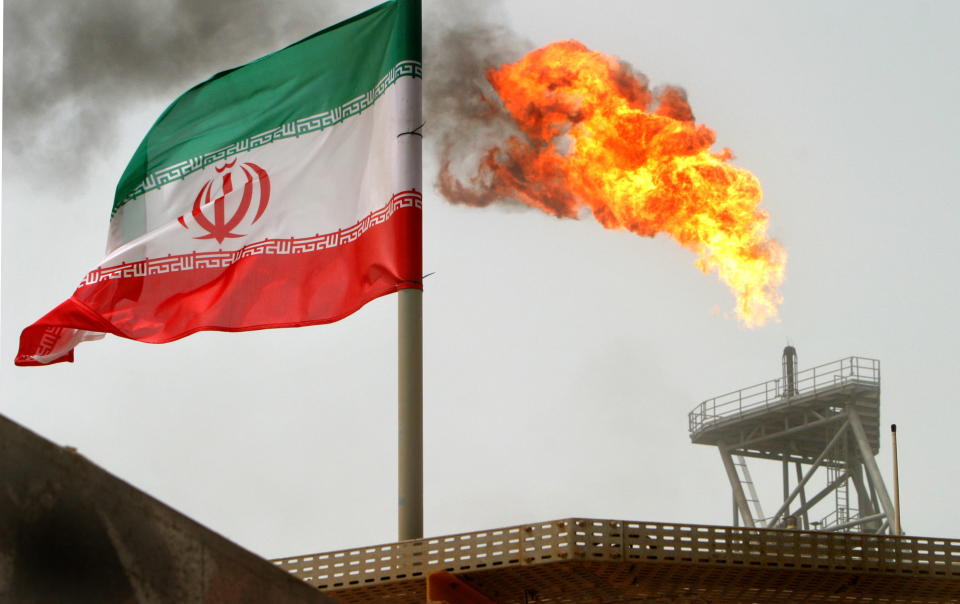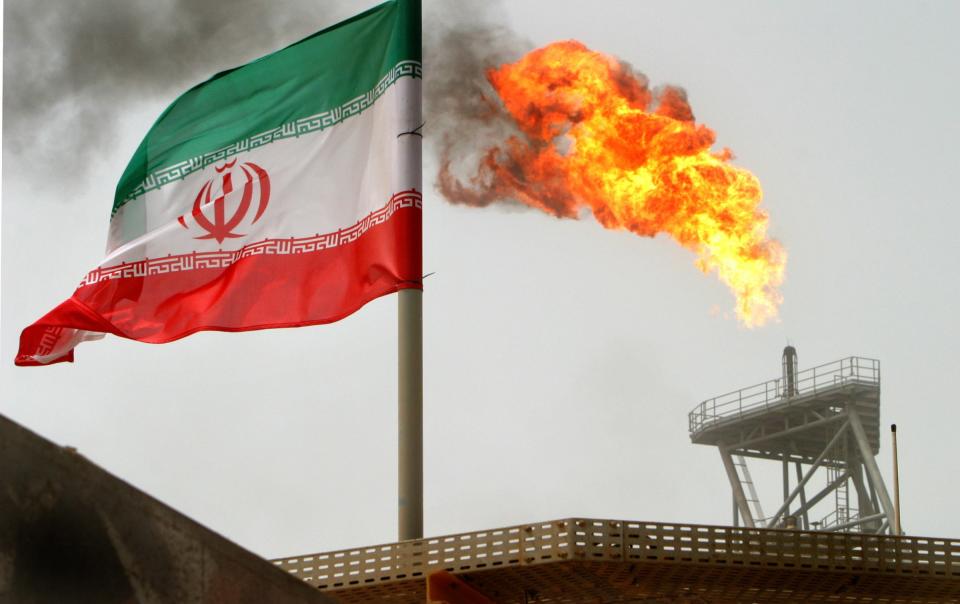Raheb Homavandi/Reuters
-
The State Department has ordered buyers to cut oil imports from Iran by November 4.
-
Against a backdrop of falling output from other key OPEC countries, analysts say barrels could hit $100.
Less than a month before another round of US sanctions against Iran take effect, analysts say hundred-dollar oil could be on the horizon.
The Trump administration has called on buyers to cut off oil imports from Iran in efforts to pressure the third-largest OPEC producer to change its behavior, a move that could squeeze global supply and pressure prices that are already at four-year highs. Brent, the international benchmark, is currently trading at around $85 a barrel.
"Higher oil prices seem inevitable and, in our view, $100 per barrel is easily within reach," economists from the Bank of America Merrill Lynch wrote in a recent research note, citing a looming dropoff in Iranian production.
Iran's crude exports have fallen more than expected ahead of the sanctions, even as the Islamic Republic offers Asian customers the cheapest prices in more than a decade versus Saudi grade. According to tanker data compiled by Bloomberg, shipments dropped by just over a quarter million barrels per day in September to the lowest level since 2016.
In hopes of preventing Tehran from moving forward with its nuclear program, European officials have been working to protect Iranian oil sales from US sanctions. But the Trump administration has portrayed those efforts as implausible, threatening to penalize companies that try to circumvent its policy.
"The European Union is strong on rhetoric and weak on follow-through," John Bolton, the national security adviser, said in a conference speech last month. "We do not intend to allow our sanctions to be evaded by Europe or anybody else."
President Donald Trump has looked to other oil producers to pick up the slack ahead of midterm elections, but output disruptions in key OPEC countries present limits. Helima Croft, a former CIA analyst who is now head of commodities research at RBC, said plummeting production in Venezuela and Angola leaves little room to balance other supply risks in Libya, Nigeria and Iraq.
"The countries that can increase are very small in number," she said, adding that there are questions about how long Russia can keep raising output. "It's really only Saudi Arabia at this point."
Following requests from the White House, Riyadh said earlier this year it could increase output by a "measurable amount." While Saudi Arabia accounts for the lion's share of OPEC production, some analysts are skeptical it has enough spare capacity to fill the gap while maintaining adequate reserves.



